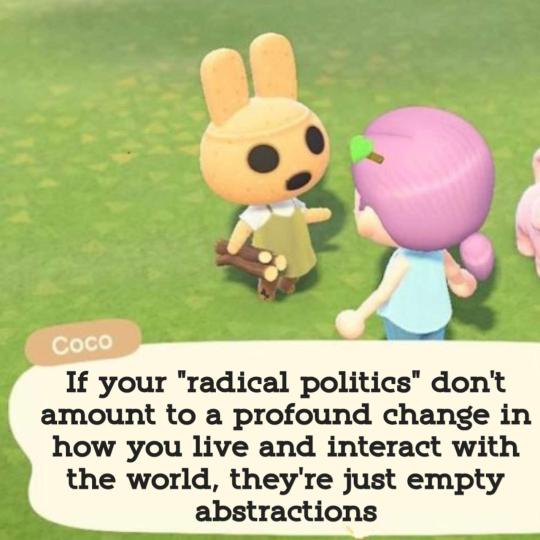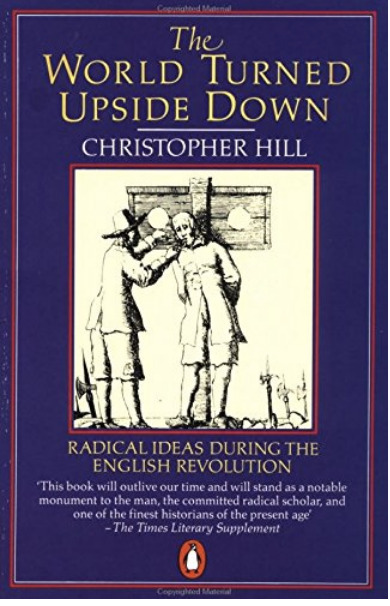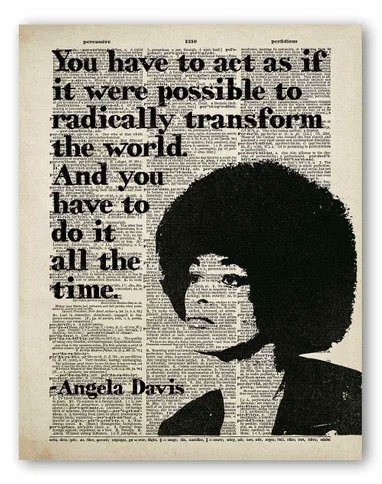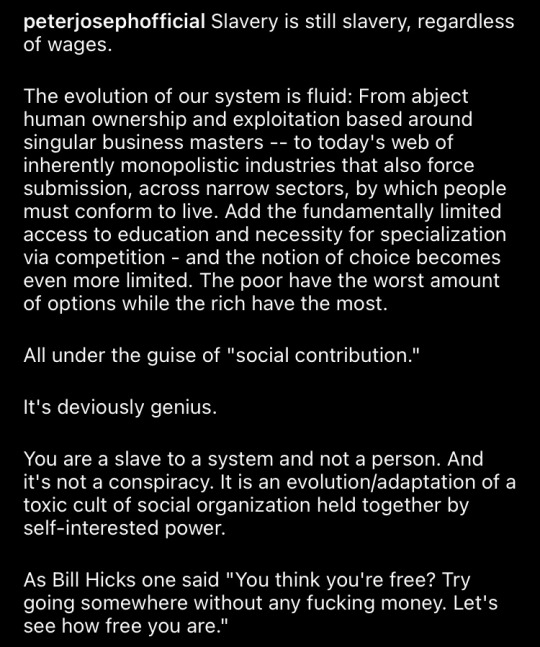#radical politics
Text

Live your politics
#Live your politics#161#1312#class war#antifa#memes#meme#facts#radical politics#ausgov#politas#earth#antifascist#antifaschistische aktion#anti capitalism#antinazi#antiauthoritarian#anarchism#anarchist#anarchocommunism#anarchopunk#anarcho syndicalism#anarchofeminism#eat the rich#eat the fucking rich#anticapitalista#anti capitalist love notes#anticapitalistically#auspol#tasgov
9 notes
·
View notes
Text
Reblog if u think Rupert Murdock should die a horrible death. Try to tag a fun way for it to happen too, ya know.... as a joke. Definitely not me trying to manifest anything or something, totally not. Anyways, if anyone who practices any magic, it'd be nice if u could send a hex or something to that greedy bastard. Ya know... as a little prank.
#rupurt murdock#fossil fuels#climate change#like to charge reblog to cast#leftblr#anarchism#global warming#radical politics#politics#fox news#witchblr
2 notes
·
View notes
Text
The inherently adaptive nature of bioessentialist ideology - as well as capital's embrace of queer inclusivity -- should finally put to rest this hopeful, yet naive notion that just because an identity is articulated as transgressive, unsettling, resistive, disruptive, or revolutionary means that it has transformative political potential. - Joanna Weust (Born This Way)
5 notes
·
View notes
Text

TOWARDS A THIRD CINEMA: NOTES AND EXPERIENCES FOR THE DEVELOPMENT OF A CINEMA OF LIBERATION IN THE THIRD WORLD (Argentina, 1969)
"This profoundly influential manifesto, which coins the term Third Cinema, lays out Solanas and Getino’s strategy in making their groundbreaking La hora de los hornos (The Hour of the Furnaces, Argentina, 1968). They position Third Cinema in contra-distinction to Hollywood fi lm (First Cinema) and European “waves” and art cinema, including cinema novo (Second Cinema). They give priority to the documentary as a form of cinema that allows for social and political analysis and transformation, calling it the main basis of revolutionary fi lmmaking. They set out to transform not only what kinds of images appear on the screen but also the ways in which moving images are distributed and screened in Latin America, arguing for exhibition practices that lie outside the dominant, capitalist modes of spectatorship. As Jonathan Buchsbaum has demonstrated, Solanas and Getino did not mean for this manifesto to be static; as such they revised it over the years, adapting it to political changes and to what they discovered through their collective Cine Liberación and through screenings of Hour of the Furnaces throughout Latin America." (Film Manifestos and Global Cinema Cultures, a Critical Anthology, 2014, Scott MacKenzie)
#latin american cinema#60s#70s#radical politics#third cinema#towards a third cinema#toward a third cinema#radical cinema#revolutionary cinema#argentinian cinema#fernando solanas#octavio getino#grupo cine liberación#documentary is never neutral#to read#cinema resource#politics resource#cinema texts#politics texts
2 notes
·
View notes
Text
Strange as it may seem I have always been of the mind that there is much to the past that we either have lost or are in danger of losing forever, and that this is a grand folly for humans. It's easy to dismiss this in radical politics, even while said politics implicitly shares the same concern.
2 notes
·
View notes
Text


Asco que tumbrl promueva radicalización politica para hacer que la izquierda queden como locos supermacistas morales y la derecha gané... como siempre.
#dumb wh0re#dumblr#political#historical#radical politics#trash politics#tumblr politics#tumblr politic complicity
0 notes
Text
















Sorry for the bad photo quality, Tumblr doesn't like posts this long.
#ramblings#politics#communism#socialism#climate change#not a reblog#when our turn comes#we shall not make excuses for the terror#environment#enviromentalism#carbon emissions#carbon footprint#global warming#climate collapse#anti capitalism#radical left#left wing#long posts#long post#color of the sky#hot take#this took like 20 minutes to upload because Tumblr kept crashing#and like 90 minutes to make
42K notes
·
View notes
Text
Sim pretty much sums up what our mission is here at BWI. We challenge our participants to dream up and describe their ideas of what a better world would look like, unconstrained by so-called “political realities”. As Howard Jones famously sang, “Throw off your mental chains, WOO HOO HOO!” The media organizations with the most influence tend to control the narrative, and dictate what is and isn’t possible, feasible, practical, desirable.
This is a space to break free of this limited discourse.
#a better world is possible#dream into reality#revolution#liberals#leftism#radical politics#liberalism#leftists#general strike#free palestine#free ourselves#free the world#union strong#labor unions#true democracy#all for all#labor creates all wealth#generalstrikeus.com
1 note
·
View note
Text
"Radicalism is a luxury of stability; we may dare to change things only when things lie steady under our hands."
Will Durant, The Story of Philosophy
VIII. POLITICS
#philosophy#radical politics#radicalism#extremist#age of extremism#civilization#discontentment#decay#decay of civilization#end of civilization#unrest#civil unrest#leadership#power#control#philosophical quotes#quotes on politics#poltiical quotes#modern life
1 note
·
View note
Link
The truth is that King’s turn to radicalism was hard won. “In some ways,” Michael Eric Dyson has written, “King’s change was even more startling and consequential than Malcolm X’s…what is little appreciated is how…an element of Malcolm’s thinking got its hooks into King.” Pre-1965, King was a public supporter of US foreign policy and capitalism who preferred to rely on traditional political maneuvers, even as he supposedly represented a movement built on direct action (King scholar Clayborne Carson notes that the reverend did not initiate the bus boycott, the sit-ins, or the Freedom Rides, and only participated in them reluctantly).
Post-1965, King gradually evolved into a relentless public opponent of American imperialism and avarice who was prepared to personally defy federal injunctions.
How did this come about? Principally through the pressure put on King by militant activists associated with SNCC. When SNCC demanded an unconditional withdrawal from Vietnam in January 1966, King suggested a conditional ceasefire—but came around to SNCC’s position a few months later. When SNCC began calling for the election of black officials who were independent of the Democratic Party, King called for the election of more blacks within the Party—but the following year considered an independent campaign himself.
#nonviolence#violence#anti-imperialism#imperialism#capitalism#anti-capitalism#radical politics#leftist politics#politics#martin luther king jr.#pacifism#mlk jr.#malcolm x#black liberation
0 notes
Text
Obama has the same function as an agent provocatuer, but he does it by co-opting radical demands. Agent somnatuer?
Charles Ferguson. Barack Obama: The oligarchs’ president. Salon.com, October 27, 2010
There are a lot of shitlib Democratic Party politicians and pundits in the United States. None, however, has the unique talents of #44Regime figurehead Barack Obama. For example, listen to #46Regime 2nd-in-command Kamala Harris and realize the unique oratory skills Obama posesses.
We have many examples of…

View On WordPress
0 notes
Video
vimeo
Lecture 21: “Killing in the Name” - Rage Against the Machine: Formed in Los Angeles in 1991, the punk/funk/rap metal band Rage Against the Machine (Zach de la Rocha, the super-talented virtuoso guitarist Tom Morello, Brad Wilk, and Tim Commerford) were/are a very political band. From their 1992 eponymous album, “Killing in the Name,” a biting leftist commentary on the sad state of American society (particularly racism and police violence), was very controversial. “Killing in the Name” has gone on to become, perhaps, Rage Against the Machine’s most recognizable song. The band split in 2000, whereupon Morello, Wilk, and Commerford joined up with Chris Cornell of Soundgarden to form the super-group Audioslave (2001-2007).
#Rage Against the Machine#(Zach de la Rocha#Tom Morello#Brad Wilk#Tim Commerford#Killing in the Name#1992#Protest music#radical politics#Chris Cornell#audioslave#alt-rock#punk#funk#rap metal
1 note
·
View note
Text
I have found that the biggest deterrent to assholes is asking "why?" Over and over.
"We can't have universal healthcare!"
Why?
"Because I don't wanna pay for a strangers health!"
Why?
"Because if they can't afford their own health care that isn't my problem!"
Why?
And so on and so on. Keep making them dig. Keep making them explain until they can't anymore and are faced with nothing but the ugly mask of bias and prejudice. Only then can they truly see that taking it off is an option. Whether they do or not is up to them. And that choice tells you whether they deserve more of your energy or not.
Trans kids can't be trans. Why? Why not? Why?
Free food is bad for ppl. Why? Why? Why? Why is feeding ppl bad?
Why?
Why is helping one another bad?
Why is doing what humans are genetically designed to do, to help and care for one another to ensure survival, bad?
#money aside#just think about it#then realize we HAVE the money#we have the money to fund all of this#through laundering in goverments and billionares who refuse to share wealth for the bettermemt of mankind#then get angry#and be radicalized#helping your fellow man through kindness is the biggest fuck you to capitalism#anti capitalism#politics#democratic socialism#socialism#eat the rich#and do this to yourself when you have bias#why did you think that way or do that action?#why was this your first response difference?#dig until you cant...and take off the mask
3K notes
·
View notes
Text

Christopher Hill's 'The World Turned Upside Down: Radical Ideas During the English Revolution', first published 1972 (Viking Press).
In 'The World Turned Upside Down' Christopher Hill studies the beliefs of such radical groups as the Diggers, the Ranters, the Levellers and others, and the social and emotional impulses that gave rise to them. The relations between rich and poor classes, the part played by wandering 'masterless' men, the outbursts of sexual freedom, the great imaginative creations of Milton and Bunyan - these and many other elements build up into a marvellously detailed and coherent portrait of this strange, sudden effusion of revolutionary beliefs. (Penguin, 2020)
On Hill:
Christopher Hill was born John Edward Christopher Hill in York, England on February 6, 1912. He attended Balliol College, Oxford University and later became the master of the college from 1965 until his retirement in 1978. In 1940, he was commissioned as a lieutenant in the Oxford and Bucks Light Infantry, before becoming a major in the intelligence corps in the Foreign Office from 1943 until the end of World War II. He was a Marxist historian whose work examined the role of economic factors in the events of 17th-century England. His works included The English Revolution 1640, Intellectual Origins of the English Revolution, God's Englishman, Reformation to Industrial Revolution, AntiChrist in 17th-Century England, Milton and the English Revolution, The World of the Muggletonians, The Experience of Defeat, and Liberty Against the Law. He died on February 23, 2003 at the age of 91. (Google Books, nd)
[I'm not able to link the pdf of the text here, but it is available in my sweeties document or through careful googling]
I found out about this through Georgie Carr's brilliant writing on 'Triangle of Sadness'.
"On one level, Östlund seems to posit a direct relationship between an excess of vomit and an intensity of critique. In contrast to the radical tradition of “the world turned upside down,” which aims to write a new history from below, Östlund instead renders society merrily askew." (Carr, 2022)
I abandoned this film in favour of spending time tickling my lover's arsehole in their sleep and couldn't dream of articulating my thoughts on the film as well as Carr does.
I could say: Östlund has created a work that nudges at style, substance, and box-office sales, but manages to rock the boat only in his definition of the word 'satire'.
But why bother? Here is Carr's article:
#christopher hill#georgie carr#another gaze#contemporary cinema#british cinema#swedish cinema#Ruben Östlund#cinema essay#british history#british politics#the world turned upside down#the diggers#the ranters#the levellers#radical politics#to read#politics resource#history resource
2 notes
·
View notes


